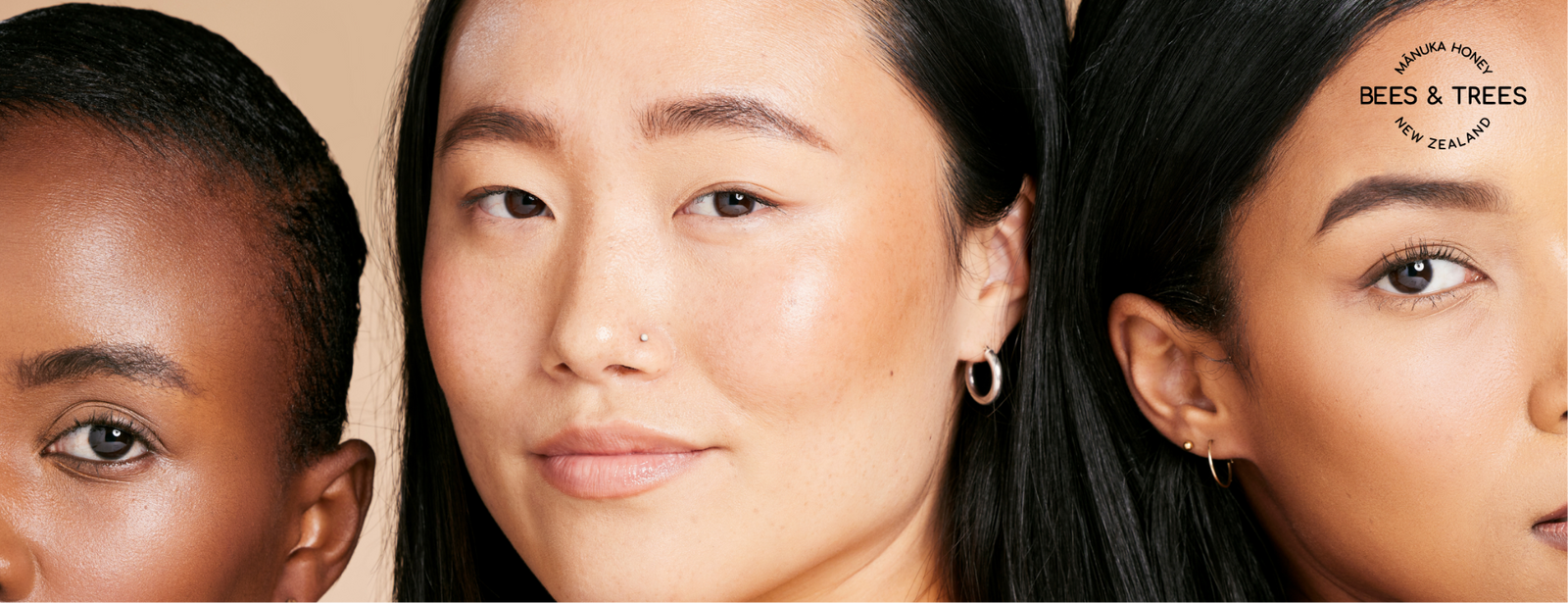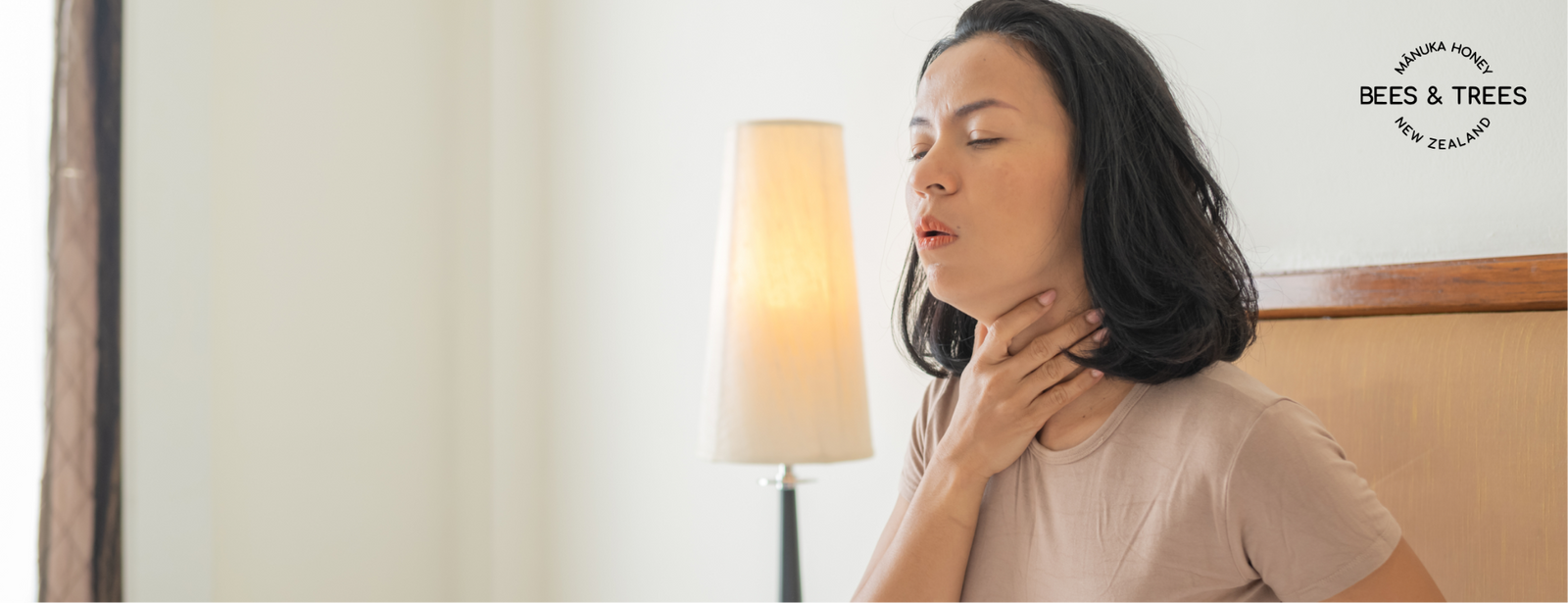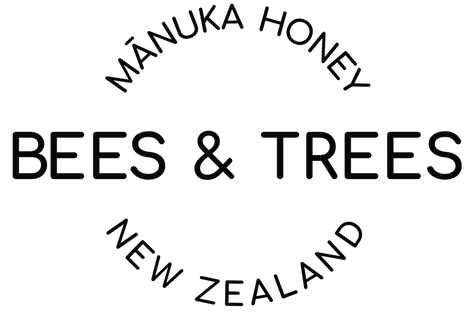
Imitating our title from the 2016 book by Marla Uspenski, “Cancer Hates Tea”, we aspire in this article to provide a medical/scientific guide for the research that has been conducted on Manuka honey and its effects on cancer.
I am not a qualified medical professional, nor do I have a science background. Therefore, I am not qualified to distill the body of knowledge represented by the studies referenced here into conclusions or specific recommendations. What I can do is summarize and outline the nature of the research that has been conducted, highlight findings that appear consistent across studies and provide a starting point for further inquiry by readers.
I appreciate the fact that for anyone currently battling cancer, or anyone with a family member or close friend with a diagnosis, this can be a heavy and scary subject. I’ve personally had two friends lose their battles with cancer in the last 12 months. I approach the subject with the utmost humility and a good faith effort to point to some positive and optimistic signs, versus making specific claims and definitive statements. Does cancer hate Manuka honey? Possibly, and I encourage you to read on and draw your own conclusions.
Manuka Honey for Cancer: 2024 Update

We first published this article in 2021 and try to update it regularly to include the latest research studies we come across. I’m heartened by the ongoing and seemingly increasing frequency of study publications. This is a field of study dominated by academics vs. biotech or pharmaceutical company-backed research. We have added 5 studies to our appendix, reference 3, and 21-24 below. Two of these studies focus on colon cancer (reference 3 & 21). Two studies are focused on the complementary use of Manuka Honey to mitigate the harsh effects of radiation & chemotherapy treatments on head and neck cancer (references 23 & 24). The other study is focused on the time to heal and scar tissue thickness for skin cancer MOHS treatment patients. (22)
While much early research has been in vitro studies, two clinical trials with human patients and an animal study using mice have recently been conducted in 2023 and 2024.
The role of Oxidative stress in causing cancer

In the first paper we included in our appendix, researchers looked at a multitude of previous studies into the links between oxidative stress, the resulting chronic inflammation, and the development and resilience of cancer cells. Referencing over 300 different papers published over two decades, this study appears to be very comprehensive. “Chronic inflammation has been linked to various steps involved in carcinogenesis, including cellular transformation, promotion, survival, proliferation, invasion, angiogenesis and metastasis”.[1] In less scientific terms, this describes how cells mutate, multiply, fail to die like normal cells, spread to different parts of the body, form tumors, etc. Quoting further from the same source, “Therefore, targeting redox-sensitive pathways and transcription factors offers great promise for cancer prevention and therapy. Numerous agents have been identified that can interfere with redox cell signaling pathways [9, 312, 313]. These include neutraceuticals derived from fruits, vegetables, spices, grains, and cereals.” Manuka honey, considered a neutraceutical due to its extensive wellness and healing properties, is actively being studied by research teams for its potential role in preventing, treating and assisting patients undergoing more traditional cancer treatment protocols.
So why are cancer researchers studying honey?

Traditional cancer treatments have limitations on certain types of cancer. Additionally, traditional cancer treatments can have adverse side-effects. These factors seem to be fueling the efforts to find more natural, plant-based products that may help prevent and/or treat and heal cancer patients.
In other instances, honey can be a complement to traditional cancer treatments, helping patients better tolerate those treatments, and working synergistically with those treatments due to the beneficial properties of Manuka honey's flavonoids and polyphenols.
Honey contains Flavonoids and phenolic acids, which researchers believe may be a key source of cancer fighting properties in foods. “Honey is among the most popular natural products which are investigated for anticancer effects.”[2] In the second paper that we point to in our appendix, researchers in 2019 looked at all of the scientific studies they could find, in which research teams tested honey (and in most cases Manuka honey) vs. cancer cell lines. The study references 70 different studies that their team reviewed to compile their paper and draw the following conclusions: “Flavonoids (kaempferol, catechin, and quercetin) and phenolic acids (caffeic acid and gallic acid) are the most important ingredients of honey with known anti-cancer activity. The main suggested mechanisms for anti-cancer activity of honey and its ingredients are antioxidant, apoptotic, tumor necrosis factor inhibiting, antiproliferative, immunomodulatory, anti-inflammatory and estrogenic effects.”
A recent 2023 study investigating the effect of Manuka honey phenolic acids on colon cancer stem cells reports, “Manuka honey, which is rich in pinocembrin, quercetin, naringenin, salicylic, p-coumaric, ferulic, syringic and 3,4-dihydroxybenzoic acids, has been shown to have pleiotropic effects against colon cancer cells.” [3]
In simple terms, Manuka honey was associated with slowing down the self-renewal ability of the colon cancer cells which may be potentially beneficial when used in combination with pharmaceuticals.
In the next sections we’ll explore further some of these anti-cancer mechanisms, pulling examples of evidence that supports the efficacy of Manuka honey where we can.
We looked at two studies that were targeted on Manuka honey’s effect on oxidative stress and chronic inflammation. There is evidence from a 2018 study [4] showing that Manuka honey exhibited a “marked potential” to protect DNA from oxidative damage in whole human blood, in the presence of hydrogen peroxide being used to induce that oxidative stress. In a more expansive study, also from 2018, researchers looked deeply into the question of can Manuka honey protect against oxidative stress and reduce chronic inflammation? The full text of this study is publicly available, it is extensive and scientifically dense. Their conclusion though is direct and encouraging, “In Conclusion, MH acted as a natural agent for preventing oxidative and inflammatory-related diseases.” [5]
The term apoptotic references the natural programmed cell death that occurs in living organisms. This process of apoptosis can be blocked in cancer cells. Thus, an apoptotic property of honey would be its ability to stimulate cell death in cancer cells.
A new study that will be published this year, in April 2022, looks into “the in vitro effect of Manuka honey and its combination with 5-Fu, the most common drug used in the treatment of colon cancer, on the morphological and physical parameters of colon spheres enriched with cancer stem-like cells deriving from HCT-116 colon adenocarcinoma cell line and on the apoptosis rate.” [6] Manuka honey was added to 5-Fu to see if the Manuka honey would enhance the effectiveness of degenerating cancer cells within the colon spheres. The study found that Manuka honey “reduced the weight, the diameter and mass density of the spheroids and induced apoptosis through the downregulation of many apoptosis inhibitors, including IAPs (Livin, Survivin, XIAP), IGFs (IGF-I, IGF-II and IGF-IR) and HSPs (HSP-27, HSP-60 and HSP-70).” [5] By downregulating the apoptosis inhibitors, proteins that block programmed cell death, led to the inhibition of additional growing cancer cells, reducing the weight. The results of this study found that Manuka honey “led to a reduction in the survival ability of cancer stem-like cells, as well as to a chemosensitizing effect of honey towards 5-Fu, considering that apoptosis resistance is one of the main causes of cancer stem-like cells chemoresistance.” [5] Overall, this study finds the inclusion of Manuka honey to 5-Fu reduces the size of spheroids by inhibiting the growth of new cancer cells and may be beneficial to reducing chemoresistance.
This recent study builds upon a 2018 study of Manuka Honey, combined with 5-fluorouracil (5-FU).. Highlights from the study included, “Manuka honey enhances 5-FU-induced apoptosis, regulating intrinsic and extrinsic pathway.” [1] Manuka honey was also found in this study to have anti-metastasis effects when combined with 5-FU, decreasing the migration of the cancer cells. Further research by this same team, published in two parts that are both referenced in our appendix, confirmed these initial findings of increased promotion of apoptosis and reduced proliferation or suppression of the cell’s metastatic ability. In these further two studies, Manuka honey was tested alone in various concentrations against two different colon cancer cell lines. Part 1 of the study concluded, “Overall, these findings indicate that MH could be a promising preventive or curative food therapy for colon cancer.” [8]
Immunomodulatory, in this context refers to the ability of honey to modulate the body’s immune system. A paper published in April of 2021 reviewed all of the cancer studies involving honey with a specific focus on summarizing the evidence for honey’s immunomodulatory properties. The full text of this study is publicly available From the concluding remarks, “The overall net changes induced by honey and its polyphenolic constituents alter the tumor microenvironment, reduce angiogenesis and reprogram immune cells, making them more hostile to the continued growth and metastasis of cancer cells.” [9]
Why Manuka Honey?

Many of the studies that have been carried out by research teams have either included Manuka honey from New Zealand among a few other honey types, or focused exclusively on Manuka honey. I believe the reason for this has to do with the reputation Manuka honey has developed over the past 30 years due to its anti-bacterial, anti-viral, anti-parasitic and anti-inflammatory properties. It may also be due to the variety of flavonoids and phenolic acids. The 2021 study, discussed above, lists the following as major flavonoids found in Manuka honey: Chrysin, Galangin, Isorhammetin, Kaemperol, Luteolin, Apigenin, Pinobanksin, Pincoembrin and Quercetin. Major phenolic acids include: 2-methoxybenzoic, 2-methoxybenzoic acid, Caffeic acid, Ferulic acid, Gallic acid, p-Couraric acid, and Syringic acid. These are certainly not household names that we are used to looking for on labels at the grocery store, but it is an impressive list and given the assumption that it is these types of compounds that most likely contribute to anti-cancer properties, Manuka honey would seem to be a really logical research candidate.
Nature of the Research

The majority of the studies that are included as references in our footnotes, or in the appendix of this article, are in vitro studies. That is, in the lab, testing vs. cell lines. There are some in vivo studies involving mice and rats. One logical next step for researchers is to begin to understand how effective Manuka honey is after being digested, and to what degree it becomes bio-available throughout the body. One study approached this question by looking at how the digestion of Manuka honey affected its cancer fighting properties. In the study, the team simulated human digestion in the lab, and then compared the efficacy of undigested and digested Manuka honey when treating human colon cancer cells. The full text of this study is publicly available, and it, too, is scientifically dense. It found similar results between the digested and raw Manuka honey, with regards to inhibiting the ability of cancer cell colonies to form, but differences in how the two honeys induced apoptosis and regulated the cell cycle. [10].
One of the studies that really caught my attention was one conducted in 2016, comparing Manuka Honey with Tualang honey (from Malaysia) on breast cancer using rats. The rats were divided into 4 groups as follows: a negative control (no tumor induction); a positive control (no honey treatment); a group fed Tualang honey; and a group fed Manuka honey. Tumors were intentionally induced and the feeding of honey began when the tumors began to be identified. In both the honey treated groups, the tumors that were formed were smaller in weight and volume, and had better histological grades compared to the untreated group. Clearly, for the honey to have helped the rats, it was digested and became available in the bloodstream to be able to impact the breast cancer cells in the tumors.
Types of Cancer Studied

In our review of the published literature, we found breast cancer (Appendix references 10,11,15,18) and colon cancer (3,6,7,8,14,16,18,21) to be the most commonly studied. Often, the frequency of these cancers occurring was given as a reason for their selection as study subjects. In the case of breast cancer, some of the research noted that it was focused particularly on cell lines that were known to be difficult to treat with conventional cancer treatments. Also reviewed were studies on skin cancer (12,18,22), prostate cancer (17), lung cancer (10) and liver cancer (13).

As promised in the introduction, I’m not making any prescriptive claims about Manuka honey’s ability to prevent, treat or cure cancer. I have a personal anecdote about a malignant biopsy, on a routine skin cancer scan that I treated with Manuka honey about 5 years ago. The lab test was positive for basal cell carcinoma. My doctor agreed to treatment after my next trip to NZ, so 3 months later I dutifully showed up for my follow-up appointment. After extensive arm twisting, I convinced my doctor to do a fresh biopsy prior to starting treatment. The biopsy came back negative and the treatment was avoided. More recently, in late 2023 I had a biopsy test positive for melanoma. I treated the biopsy site with 830+ MGO manuka for about 2+ weeks before the site healed. This time, given the melanoma diagnosis, I proceeded with the surgery when scheduled a few weeks later. The lab tests showed no signs of the cancer. Not clear margins, but no cancer was found. Two data points which one can’t draw conclusions from, but encouraging nonetheless.
I do believe there is a meaningful body of science building a case for serious consideration being given to Manuka honey’s role in cancer prevention and treatment. I hope this article gives you a sense for the nature of the research work undertaken to-date, as well as a feeling for the encouraging findings from these studies. For those of us blessed with generally good health, perhaps this provides one more argument for incorporating Manuka honey into our daily diet, as a preventative measure against a host of diseases. For those that are actively fighting cancer, or have a loved one that is doing so, I hope this article provides a resource for further research and investigation. Our goal at Bees & Trees is to share with our customers one of nature’s truly amazing foods, in its most raw and unadulterated form. We wish you good health for you today and into the future.
Founder: Mike Everly
A note about the appendix.
For each of the studies that we reviewed in preparing this article, we’ve outlined some basic information about the study and included links to each study. We have noted if only the abstract, or if the full text of the study is available. Some of these links will be to the abstract, and may require clicking on the links under the title for the PMCID or DOI numbers to access the full text of the articles. Where we say that only the abstract is available, we mean for free. Anyone can purchase access to the full text of papers through various services which will be indicated on the abstract page. Don’t hesitate to contact us if you are trying to follow-up on a subject and having difficulty with a link or finding the article and we’ll try to assist. You can email me directly at mike@beesandtrees.com or our main mailbox at sales@beesandtrees.com.
Appendix
Research related to Manuka Honey and Cancer
- Oxidative stress, inflammation, and cancer: how are they linked?
- 2010
- Study type: research review
- Oxidative stress, chronic inflammation, link to cancer
- “Overall, observations to date suggest that oxidative stress, chronic inflammation, and cancer are closely linked”
- https://www.ncbi.nlm.nih.gov/pmc/articles/PMC2990475/
- Full text available
- Honey and cancer: A mechanistic review
- 2019
- Study type: research review
- All honeys, focus on mechanisms
- “Flavonoids (kaempferol, catechin, and quercetin) and phenolic acids (caffeic acid and gallic acid) are the most important ingredients of honey with known anti-cancer activity. The main suggested mechanisms for anti-cancer activity of honey and its ingredients are antioxidant, apoptotic, tumor necrosis factor inhibiting, antiproliferative, immunomodulatory, anti-inflammatory and estrogenic effects”
- https://pubmed.ncbi.nlm.nih.gov/30639116/
- Abstract only available
- Can the phenolic compounds of Manuka honey chemosensitize colon cancer stem cells? A deep insight into the effect on chemoresistance and self-renewal
- 2023
- Study type: In vitro colon cancer stem cells
- “Manuka honey, which is rich in pinocembrin, quercetin, naringenin, salicylic, p-coumaric, ferulic, syringic and 3,4-dihydroxybenzoic acids, has been shown to have pleiotropic effects against colon cancer cells.”
- https://pubmed.ncbi.nlm.nih.gov/37418807/
- Full text available
- Manuka honey attenuates oxidative damage induced by H 2 O 2 in human whole blood in vitro
- 2018
- In vitro study using whole blood.
- NZ Manuka Honey effect on oxidative DNA damage.
“Manuka honey exhibited a marked potential to protect DNA of whole blood cells from oxidative damage induced by hydrogen peroxide in vitro” - https://pubmed.ncbi.nlm.nih.gov/29763681/
- Abstract only available
- Protective effects of Manuka honey on LPS-treated RAW 264.7 macrophages. Part 2: Control of oxidative stress induced damage, increase of antioxidant enzyme activities and attenuation of inflammation
- 2018
- In vitro study
- Manuka honey ability to mediate oxidative stress and inflammation
- In conclusion, MH acted as a natural agent for preventing oxidative and inflammatory-related diseases
- https://pubmed.ncbi.nlm.nih.gov/30077706/
- Abstract only available
- Manuka honey in combination with 5-Fluorouracil decreases physical parameters of colonspheres enriched with cancer stem-like cells and reduces their resistance to apoptosis
- 2022
- In vitro study
- Manuka honey and its combination with 5-Fu, on the morphological and physical parameters of colonspheres enriched with cancer stem-like cells deriving from HCT-116 colon adenocarcinoma cell line and on the apoptosis rate.
- “These results led to a reduction in the survival ability of cancer stem-like cells, as well as to a chemosensitizing effect of honey towards 5-Fu, considering that apoptosis resistance is one of the main causes of cancer stem-like cells chemoresistance.”
- https://pubmed.ncbi.nlm.nih.gov/34883427/
- Abstract only available
- Manuka honey synergistically enhances the chemopreventive effect of 5-fluorouracil on human colon cancer cells by inducing oxidative stress and apoptosis, altering metabolic phenotypes and suppressing metastasis ability.
- 2018
- human colon cancer
- Synergistic affect of MH with 5-fluorouracil (chemo drug)
- “In conclusion, MH could be a useful preventive or adjuvant agent in the treatment of colorectal cancer with 5-FU”
- https://pubmed.ncbi.nlm.nih.gov/30056083/
- Abstract only available
- The inhibitory effect of Manuka honey on human colon cancer HCT-116 and LoVo cell growth. Part 1: the suppression of cell proliferation, promotion of apoptosis and arrest of the cell cycle
- 2018
- Human colon cancer HCT-116 and LoVo
- In vitro MH only vs. cell lines
- “MH exhibited profound inhibitory effects on cellular growth by reducing the proliferation ability”
- “Overall, these findings indicate that MH could be a promising preventive or curative food therapy for colon cancer”
- https://pubmed.ncbi.nlm.nih.gov/29645049/
- Abstract only available
- The inhibitory effect of Manuka honey on human colon cancer HCT-116 and LoVo cell growth. Part 2: Induction of oxidative stress, alteration of mitochondrial respiration and glycolysis, and suppression of metastatic ability
- 2018
- Human colon cancer HCT-116 and LoVo
- In vitro MH only vs. cell lines, study focus on mechanisms
- MH induces HCT-116 and LoVo cell death partly by enhancing oxidative stress, as well as by regulating the energy metabolism in both aerobic and anaerobic pathways and suppressing the metastatic ability
- https://pubmed.ncbi.nlm.nih.gov/29644357/
- Abstract only available
- The Immunomodulatory Effects of Honey and Associated Flavonoids in Cancer
- 2021
- Review of existing studies, focus on Honey’s ability to modulate the immune system in relation to cancer.
- Includes table with major flavonoids and phenolic acids by honey type. Induction of proInflamatory cytokines, anti-inflammatory properties, In vivo animal studies, Immunomodulatory effects of Major Polyphenolic compounds.
- “Given the multiple bioactive compounds present in honey, it is not perhaps surprising that both pro-inflammatory as well as anti-inflammatory properties have been demonstrated for these constituents. The overall net changes induced by honey and its polyphenolic constituents alter the tumor microenvironment, reduce angiogenesis and re-program immune cells, making them more hostile to the continued growth and metastasis of cancer cells.”
- https://www.ncbi.nlm.nih.gov/pmc/articles/PMC8069364/
- Full text available
- Inhibition of Tyrosine-Phosphorylated STAT3 in Human Breast and Lung Cancer Cells by Manuka Honey is Mediated by Selective Antagonism of the IL-6 Receptor
- 2019
- Breast Cancer (MDA-MB-231), lung cancer (A549)
- In vitro study, focus on IL-6 receptor pathway
- “Taken together, our findings identify IL-6Rα as a direct target of MH and its flavonoids, highlighting IL-6R blockade as a mechanism for the anti-tumor activity of MH, as well as a viable therapeutic target in IL-6-dependent cancers”
- https://www.ncbi.nlm.nih.gov/pmc/articles/PMC6769459/
- Full text available
- The IL-6/STAT3 Signaling Pathway Is an Early Target of Manuka Honey-Induced Suppression of Human Breast Cancer Cells
- 2017
- Breast Cancer (MDA-MB-231; MCF-7; MCF-10A)
- In vitro study, focus to identify pathways
- “Our findings identify multiple functional pathways affected by MH in human breast cancer and highlight the IL-6/STAT3 signaling pathway as one of the earliest potential targets in this process”
- https://www.ncbi.nlm.nih.gov/pmc/articles/PMC5557744/
- Full text available
- Manuka Honey Induces Apoptosis of Epithelial Cancer Cells through Aquaporin-3 and Calcium Signaling
- 2020
- Epidermal carcinoma (A431)
- In vitro study, Intracellular ROS & Calcium, leading to cell death by apoptosis.
- “Taken together, data from in vitro experiments and preliminary in vivo researches are encouraging for using honey in chemo-prevention as well as an adjunct therapy to tumor drugs”
- https://www.ncbi.nlm.nih.gov/pmc/articles/PMC7692226/
- Full text available
- Manuka honey enhanced sensitivity of HepG2, hepatocellular carcinoma cells, for Doxorubicin and induced apoptosis through inhibition of Wnt/β-catenin and ERK1/2
- 2021
- Hepatocellular carcinoma (liver cancer), (HepG2; Hep3B)
- In vitro study, synergistic affect of MH + Doxorubicin (DOX)
- “Our data showed a synergistic inhibitory effect of MH on DOX-mediated apoptotic cell death in HCC cells. To our knowledge, the present study provides the first report on the anticancer activity of MH and its combined treatment with DOX on HCC cell lines, introducing MH as a promising natural and nontoxic anticancer compound”
- https://www.ncbi.nlm.nih.gov/pmc/articles/PMC8161992/
- Full text available
- The Influence of In Vitro Gastrointestinal Digestion on the Anticancer Activity of Manuka Honey
- 2020
- Human colon cancer (HCT-116)
- In vitro study, comparing digested to non-digested MH
- “Although change in the content of phenolic compounds was evident, the antioxidant capacity decreased much less…..Regarding the anti-tumor activity against HCT-116, both treatments led to similar results regarding intracellular ROS production and inhibition of colony formation. However, some differences have been observed in the induction of apoptosis and the regulation of the cell cycle, resulting in a block of cells in two different phases (S for MH and Sub G1 for DMH)
- https://www.ncbi.nlm.nih.gov/pmc/articles/PMC7023262/
- Full text available
- Inhibitory effects of Malaysian tualang honey and Australian/New Zealand Manuka honey in modulating experimental breast cancers induced by n-methyl-n-nitrosourea (mnu): A comparative study
- 2016
- Breast Cancer, inhibitory affect carcinogen In vivo in Rats.
- Control compared to two honey types, compared number of tumors that formed and pathologically graded the tumors.
- “Our findings demonstrate that systemic administration of TH and MH increases the susceptibility of expression of proapoptotic proteins (Apaf-1, Caspase-9, IFN-γ, IFNGR1, and p53) and decreases the expression of antiapoptotic proteins (TNF-α, COX-2, and Bcl-xL 1) in its mechanism of action. This highlights a potential novel role for TH and MH in alleviating breast cancer
- https://www.ncbi.nlm.nih.gov/pmc/articles/PMC5396450/
- Full text available
- Phenolic compounds from Mediterranean foods as nutraceutical tools for the prevention of cancer: The effect of honey polyphenols on colorectal cancer stem-like cells from spheroids
- 2020
- In vitro, Colorectal Cancer (HCT-116)
- Manuka honey effects on cancer stem cells.
- “The results showed that MH reduced the volume of the entire culture of spheroids, affecting also their morphological parameters and induced apoptosis and ROS intracellular accumulation in CSCs-like. In addition, MH decreased the mRNA expression of one of ABC transporters (ABCG2) and affected self-renewal ability through the downregulation of the mRNA expression of one of the receptor membranes of Wnt/β-catenin pathway (Frizzled 7).”
- https://pubmed.ncbi.nlm.nih.gov/32387951/
- Abstract only available
- Honey reduces the metastatic characteristics of prostate cancer cell lines by promoting a loss of adhesion
- 2018
- In vitro prostate cancer cell lines (PC3, DU145)
- NZ Manuka, Thyme, and honeydew honeys
- “Therefore, honey and its sugar and phenolic components can lower the metastatic properties of cancer cells, and may do this by preventing effective cell adhesion to the extracellular matrix. The sugars and phenol compounds of honey are much more effective in combination than individually”
- https://pubmed.ncbi.nlm.nih.gov/30002964/
- Full text available
- Intravenous Administration of Manuka Honey Inhibits Tumor Growth and Improves Host Survival When Used in Combination with Chemotherapy in a Melanoma Mouse Model.
- 2013
- 3 cell lines, murine melanoma, colorectal carcinoma,
- Human breast cancer.
- In vitro, and in vivo mouse testing.
- Positive results
- https://journals.plos.org/plosone/article?id=10.1371/journal.pone.0055993
- Full text available
- 2016
- Review of existing research studies, focus on needed future research
- How honey may help prevent and treat cancer; not Manuka specific, but manuka shows up 34 times in the study.
- “This review examines the role of honey in targeting key hallmarks of carcinogenesis, including uncontrolled proliferation, apoptosis evasion, angiogenesis, growth factor signaling, invasion, and inflammation. The evidence for honey as an adjunct to conventional cancer therapy is also presented”
- https://www.ncbi.nlm.nih.gov/pmc/articles/PMC5456322/
- Full text available
- 2024
- Study Type: animal trials, mouse
- Focus on colorectal cancer
- “findings highlight the immunostimulatory properties of MH and demonstrate its potential utilization in cancer prevention and treatment”
- https://pubmed.ncbi.nlm.nih.gov/38444857/
- Full text available
- 2023
- Study Type: Clinical trials, human subjects
- Focus on healing of skin cancer surgery sites
- Found Manuka honey treatment reduced pain and thickness of scarring tissue
- https://pubmed.ncbi.nlm.nih.gov/37647156/
- Abstract only available
- 2023
- Study Type: Review of prior studies
- Focus: Natural products (including Manuka honey) effectiveness in mitigating the effects of radiation cancer treatment on the mouth, throat, and esophagus.
- Findings showed that natural products are effective in mitigating the effects, reducing pain, severity, etc.
- https://pubmed.ncbi.nlm.nih.gov/37209466/
- Full text available
- 2023
- Study Type: Randomized clinical trial
- Focus: Use of Manuka Honey or Olive Oil to treat the harsh effects of chemotherapy on children with leukemia.
- Results showed Manuka honey patients experienced reduced severity of oral mucositis and less pain.
- https://pubmed.ncbi.nlm.nih.gov/36792398/
- Abstract only available







